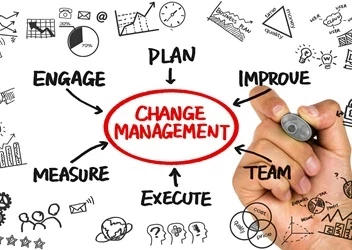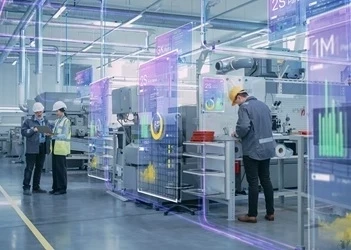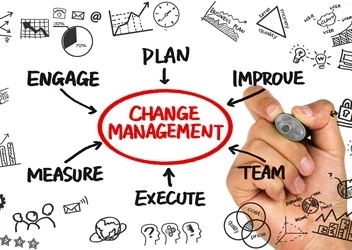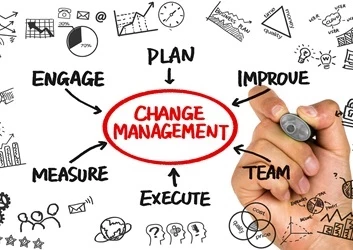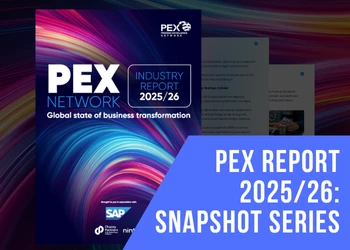ACMP outlines 5 steps to modern change management
Change management is evolving and professionals must evolve with it
Add bookmark
The Association of Change Management Professionals (ACMP) outlined five steps to modern change management in a new whitepaper published this week.
Navigating the Future of Change Management examines the trends, challenges and opportunities facing change management leaders today.
“Change management is at a crossroads, shaped by rapid technological advancements, workforce expectations and economic shifts,” the paper read. The future of change management will require an agile mindset, where practitioners continuously iterate their approaches based on real-time feedback and shifting business landscapes, it added.
Join the PEX Network community

Don't miss any news, updates or insider tips from PEX Network by getting them delivered to your inbox. Sign up to our newsletter and join our community of experts.
Learn More1. Revolutionizing change management with AI
Artificial intelligence (AI) enhances change processes by automating many processes or tasks such as stakeholder analysis, impact assessments and real-time feedback. However, ethical concerns, trust issues and data reliability must be addressed to ensure AI’s responsible adoption.
“AI-generated insights complement but do not replace human expertise in change leadership. AI-driven sentiment analysis helps organizations anticipate resistance and tailor communications.”
To drive meaningful change management value with AI, the ACMP advised leaders to:
- Establish AI knowledge hubs to centralize best practices and train practitioners in AI literacy.
- Develop AI ethics committees to mitigate bias, ensure transparency and guide responsible AI adoption.
- Use AI-driven coaching models for leadership development, enabling leaders to tailor their change strategies based on AI-generated insights, evolving leadership needs.
- Integrate AI-assisted decision-making into change frameworks, ensuring that AI augments but does not replace human judgment.
2. Driving adoption in mergers and acquisitions
Cultural misalignment is the biggest barrier to successful mergers and acquisitions (M&A) integration, the whitepaper stated. AI-driven messaging can personalize communication and engagement strategies for M&A, agile frameworks improve adaptability and reduce resistance by involving people early and often and employee well-being is critical in reducing change fatigue, it added. “Leaders must step up to promote and defend wellness considerations during highly stressful shifts.”
To successfully manage M&A activity, change management leaders should:
- Implement real-time AI-driven feedback loops to adjust integration efforts dynamically.
- Train middle managers to become change leaders by equipping them with coaching and engagement techniques.
- Apply change management principles to both acquirer and acquired organizations, ensuring a smooth transition and sustaining the effort over time after the merger project is concluded.
- Develop structured post-merger cultural alignment frameworks to align the values, behaviors, norms and communication styles of the organizations involved.
- Introduce change management as a core competency in M&A playbooks, integrating structured communication plans and cultural assessments from the outset.
Join us at All Access: Change Management for Business Transformation 2025 to learn how to measure the success of change initiatives
3. Advancing change management through coaching
Coaching enhances leadership adaptability and resilience during transformation, according to ACMP. AI-powered coaching tools provide personalized support but require human oversight, while emotional intelligence and stakeholder engagement are key success factors. “Coaching fosters a learning culture that enables organizations to navigate continuous change.”
Leaders can enhance change management through coaching by:
- Embedding coaching frameworks into change initiatives to strengthen leadership and employee engagement.
- Developing structured leadership coaching programs to foster resilience and equip managers to act as change champions.
- Promoting a coaching culture across all organizational levels by integrating coaching into business processes.
- Encouraging self-directed learning through AI-assisted coaching programs, reinforcing change adoption at an individual level.
4. Maximizing impact with metrics, data and dashboards
Change management leaders must be data-savvy to leverage insights effectively. AI-powered dashboards enhance real-time tracking and decision-making and storytelling is essential for translating data into compelling narratives for leadership, ACMP said. “Measuring emotional and behavioral change is as critical as tracking operational KPIs.”
Change management leaders should:
- Deploy AI-powered dashboards to monitor change adoption rates and identify patterns of resistance.
- Use real-time data to help change teams pivot quickly when challenges arise.
- Develop data literacy training programs for change professionals to enhance their analytical capabilities.
- Use predictive analytics to proactively mitigate resistance and improve intervention effectiveness.
- Implement data storytelling techniques to present change progress in a way that resonates with stakeholders and sponsors.
5. Empowering change through effective sponsorship
Active sponsorship is the number one predictor of change success, according to the whitepaper. AI can enhance sponsorship effectiveness through real-time feedback and engagement tracking, but sponsors need trust, emotional intelligence and clear communication to build credibility. “Sponsors need structured support to sustain their commitment to change initiatives.”
To empower change through effective sponsorship, leaders should:
- Train sponsors in change leadership and engagement techniques to improve their ability to drive adoption.
- Use AI-driven sponsorship analytics to measure impact and adjust engagement strategies in real-time.
- Integrate coaching and storytelling techniques into sponsorship programs to create authentic engagement.
- Establish structured sponsorship frameworks to ensure sustained leadership involvement and accountability.
Embracing modern change management
The future of change management requires adaptability, strategic foresight and a commitment to continuous learning, ACMP stated. Change management is evolving and professionals must evolve with it.
“Professionals who practice change management must embrace AI-driven insights, coaching frameworks and data-centric decision-making while maintaining a human-centered approach to transformation.”
By blending emerging trends with proven frameworks, change practitioners can more effectively manage future complexities and guide organizations toward lasting transformation.
All Access: AI in Process Excellence 2026
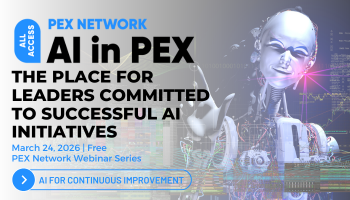
Don’t get left behind. Join us at All Access: AI in Process Excellence to learn from leading experts, thought leaders, and practitioners who are on the ground experimenting, researching, and learning how to best use AI. They will share their secrets with you for free. And you’ll have the opportunity to network with fellow professionals as we navigate this new world. Register now to save your spot.
Register Now

